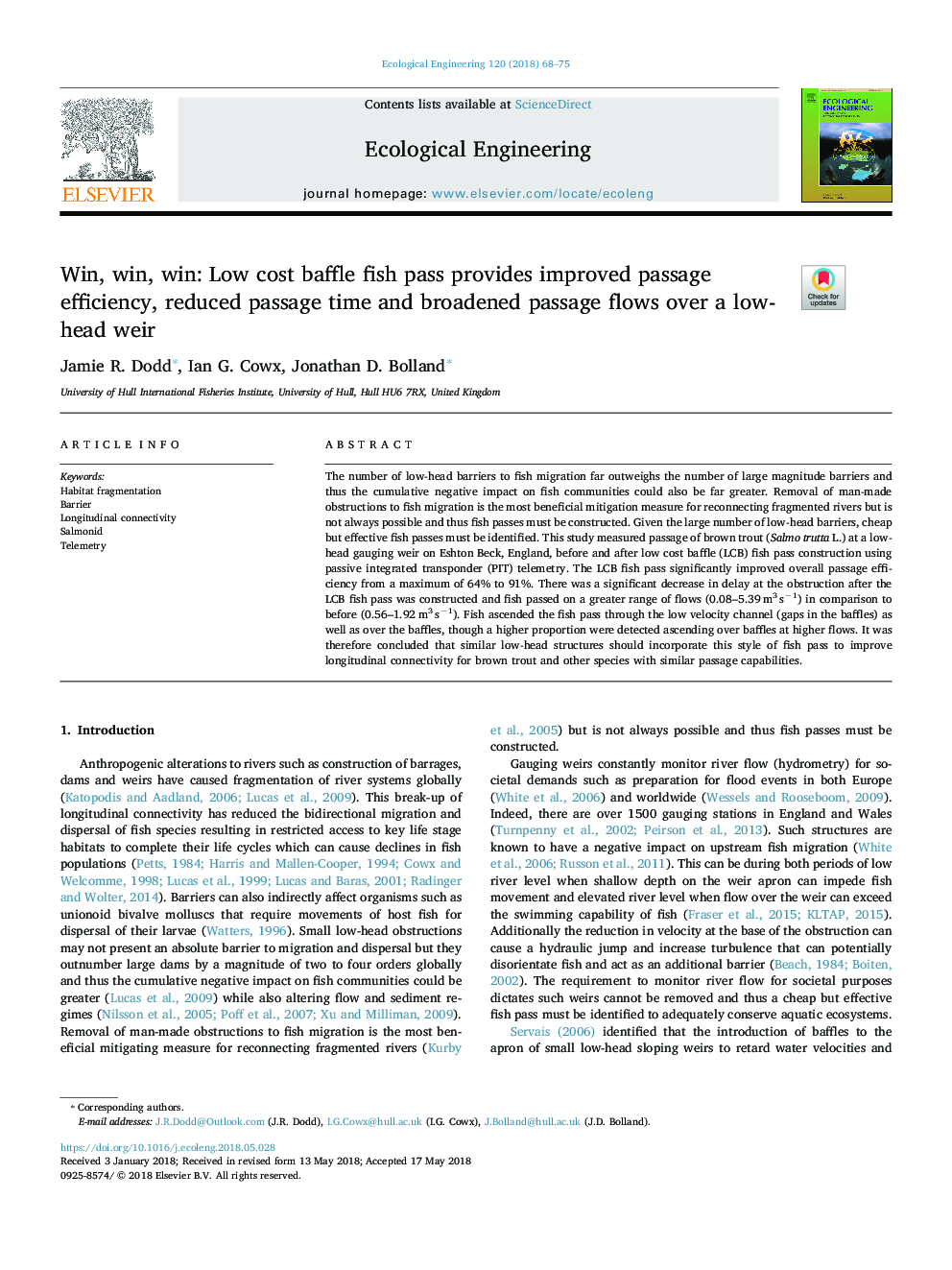| کد مقاله | کد نشریه | سال انتشار | مقاله انگلیسی | نسخه تمام متن |
|---|---|---|---|---|
| 8847747 | 1617982 | 2018 | 8 صفحه PDF | دانلود رایگان |
عنوان انگلیسی مقاله ISI
Win, win, win: Low cost baffle fish pass provides improved passage efficiency, reduced passage time and broadened passage flows over a low-head weir
ترجمه فارسی عنوان
پیروزی، پیروزی و پیروزی: عبور ماهی با هزینه پایین، باعث افزایش بهره وری عبور، کاهش زمان عبور و جریان عبور بیش از یک سر و صدای پایین می شود
دانلود مقاله + سفارش ترجمه
دانلود مقاله ISI انگلیسی
رایگان برای ایرانیان
کلمات کلیدی
تجزیه زیست محیطی، مانع اتصال طولی، سالمونید، تله متری،
موضوعات مرتبط
علوم زیستی و بیوفناوری
علوم کشاورزی و بیولوژیک
بوم شناسی، تکامل، رفتار و سامانه شناسی
چکیده انگلیسی
The number of low-head barriers to fish migration far outweighs the number of large magnitude barriers and thus the cumulative negative impact on fish communities could also be far greater. Removal of man-made obstructions to fish migration is the most beneficial mitigation measure for reconnecting fragmented rivers but is not always possible and thus fish passes must be constructed. Given the large number of low-head barriers, cheap but effective fish passes must be identified. This study measured passage of brown trout (Salmo trutta L.) at a low-head gauging weir on Eshton Beck, England, before and after low cost baffle (LCB) fish pass construction using passive integrated transponder (PIT) telemetry. The LCB fish pass significantly improved overall passage efficiency from a maximum of 64% to 91%. There was a significant decrease in delay at the obstruction after the LCB fish pass was constructed and fish passed on a greater range of flows (0.08-5.39â¯m3â¯sâ1) in comparison to before (0.56-1.92â¯m3â¯sâ1). Fish ascended the fish pass through the low velocity channel (gaps in the baffles) as well as over the baffles, though a higher proportion were detected ascending over baffles at higher flows. It was therefore concluded that similar low-head structures should incorporate this style of fish pass to improve longitudinal connectivity for brown trout and other species with similar passage capabilities.
ناشر
Database: Elsevier - ScienceDirect (ساینس دایرکت)
Journal: Ecological Engineering - Volume 120, September 2018, Pages 68-75
Journal: Ecological Engineering - Volume 120, September 2018, Pages 68-75
نویسندگان
Jamie R. Dodd, Ian G. Cowx, Jonathan D. Bolland,
